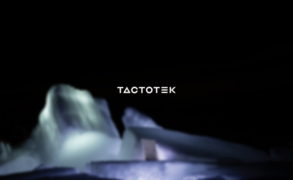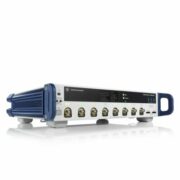RTI introduces the first platform-independent, ASIL-D certified communications framework for automotive, bridging the gap between AUTOSAR and DDS
Real-Time Innovations (RTI), the largest software framework company for autonomous systems, today announced RTI Connext Drive® 3.0: The flexible, future-proof, and data-centric communication framework for software-defined vehicles (SDVs). It expedites time to market by providing the first platform-independent adherence to the highest functional safety standard, ISO26262 ASIL D and bridges the platform gap between DDS, AUTOSAR Classic, AUTOSAR Adaptive and ROS 2. With Connext Drive 3.0, OEMs can get their next-generation vehicle to market faster by using the same framework from prototype to production. Its unmatched architectural versatility minimizes the amount of custom communication and integration code users have to develop.
Based on the Data Distribution Service (DDS™) standard, Connext Drive 3.0 delivers on the promise of safer, more flexible and adaptable automotive systems by forging a pathway between functional safety and innovation. In automotive, RTI works with more than 25 companies who use Connext to accelerate their software-defined programs.
“There’s a growing need for auto manufacturers to reduce risk and accelerate production-readiness through safety-certified software,” said Andrew Longhurst, Managing Director at WITTENSTEIN high integrity systems. “We see how the release of Connext Drive 3.0 can meet these requirements at the highest level, as it now includes a platform-independent footprint with ASIL-D compliance that facilitates the integration with SAFERTOS®, our safety critical real-time operating system. Connext Drive, running alongside SAFERTOS®, provides OEMs with the rigorous performance and safety needed for their production vehicles worldwide.”
“Based on our rigorous and approved ISO26262 verification processes, Verocel has demonstrated that the latest version of RTI Connext Cert within Connext Drive 3.0 complies with ISO 26262 ASIL-D requirements,” said Jim Chelini, President and CEO at Verocel. “Over the course of several months, our teams conducted thorough code reviews, analysis, documentation and testing, and were able to generate full traceability mapping between all related lifecycle artifacts. Automotive software architects can confidently leverage Connext Drive 3.0 to clear regulatory hurdles for their embedded safety-critical automotive applications.”
The latest version of Connext Drive 3.0 includes:
- Functional Safety: Connext Drive 3.0 is the first DDS-based communications framework that adheres to the highest functional safety standards (ISO26262 ASIL D).
- A flexible, accelerated path to Certification: Connext Drive is the first platform-independent ASIL-D TUV SUD certified software; it eliminates the need for recertification if the vehicle operating system or network interfaces change.
- A Solution to Bridge the Platforms Gap: RTI Connext Integration Toolkit for AUTOSAR seamlessly connects between DDS and AUTOSAR Classic/AUTOSAR Adaptive without custom code.
“Connext Drive 3.0 enables manufacturers to create safer, more flexible and adaptable communication architectures with less risk,” said Pedro Lopez Estepa, Director of Automotive at RTI. “Our customers now have an optimal way to enable vehicle communication as their platform evolves because of our latest platform-independent solution. The communication is not limited to DDS, as Connext Drive provides interoperable solutions with AUTOSAR Classic, AUTOSAR Adaptive and ROS. Connext Drive paves the way for the next generation of software-defined vehicles and empowers manufacturers to innovate fearlessly while accelerating success.”
For more information on Connext Drive 3.0 and a full list of new features, please visit:










